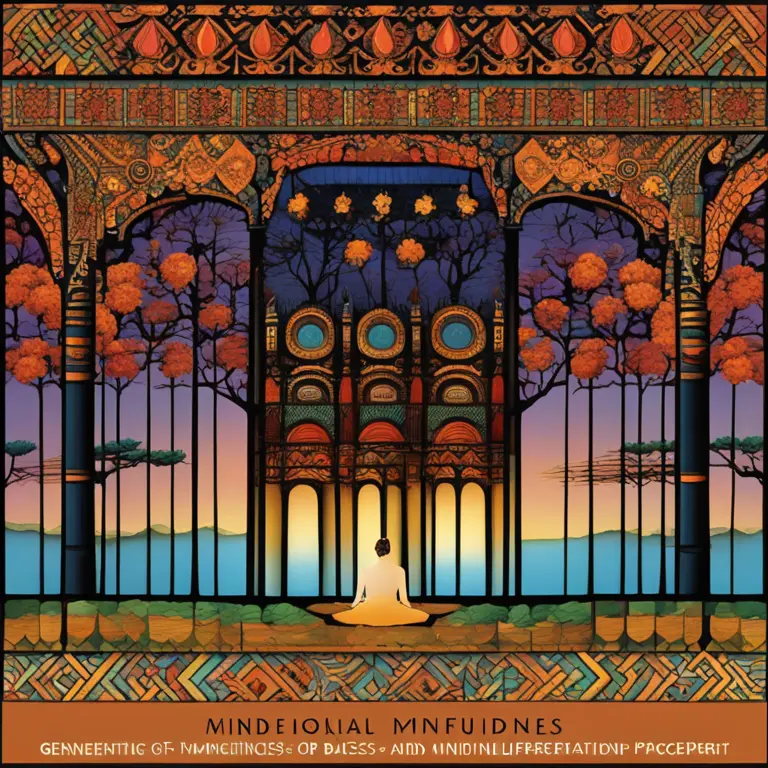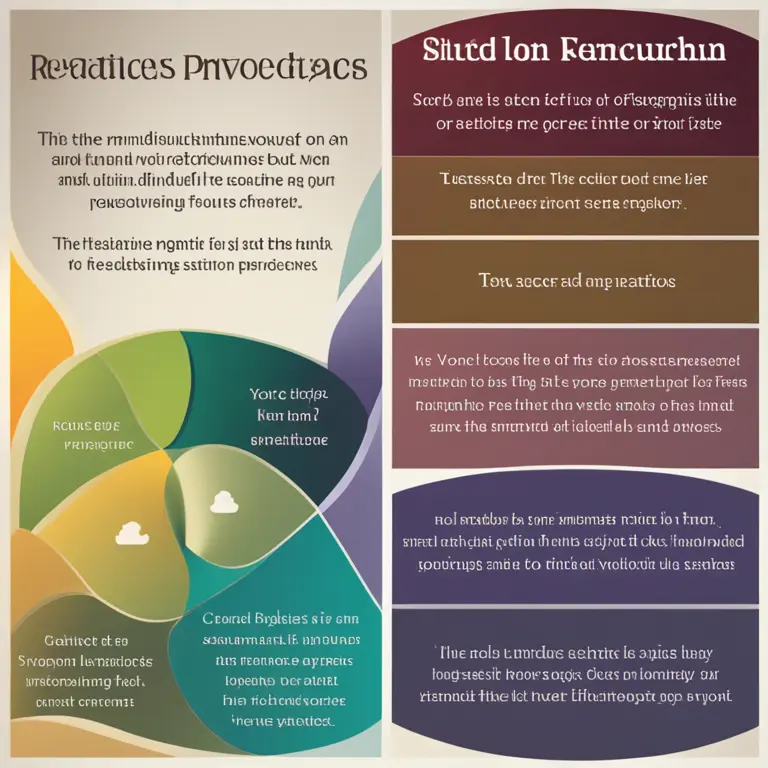
Harmony in Bonds: Meditation & Mindfulness in Relationships
Discover the strengthening impact of meditation and mindfulness on relationship connections, fostering harmony and understanding.
article by Hina Kurosawa
The Influence of Mindful Practices
Meditation and mindfulness are ancient practices that have been increasingly integrated into modern lifestyles, not only for personal growth but also as a tool to enhance relationships. The dynamism of these practices lies in their versatility and adaptability—attributes that benefit interpersonal interactions. Integrating mindful exercises can facilitate a deeper connection with loved ones by promoting empathy, patience, and open communication. As couples and friends engage in joint mindful practices, they experience not just improved self-awareness but an enhanced understanding of each other's emotional landscapes.

Strengthening Emotional Bonds
At the heart of any relationship is the intricate tapestry woven by emotional interactions. Meditation and mindfulness serve to strengthen these bonds by encouraging individuals to be present and truly attentive to their partners. This acts as a foundation for building trust and commitment, as partners feel heard and valued. Moreover, during moments of conflict, the skills honed through mindfulness—such as emotional regulation and stress management—become indispensable tools. They enable us to approach disagreements with a calm mind, ensuring productive resolution and reduced friction.

Encouraging Compassionate Dialogue
An integral aspect of sustaining relationships is the capability to communicate effectively and compassionately. Mindfulness fosters this by teaching us to listen without judgment and speak with intention. This leads to a form of dialogue where both partners feel safe to express their vulnerabilities and support one another. As a result, misunderstandings diminish, and the relationship is nurtured through a culture of mutual respect and caring words.

Personal Growth and Shared Journeys
While meditation is often seen as a solo journey, bringing the practice into a relationship paves the way for concurrent personal growth and shared experiences. Couples can set intentions together, creating a sense of unity and direction within the partnership. This shared dedication to personal development through mindful practices can act as a bond-strengthening agent, aligning individual aspirations with collective goals.

Creating a Calm Relationship Environment
The serenity achieved through regular meditation creates a ripple effect, contributing to a calmer, more harmonious relationship environment. Stressful situations are less likely to escalate as both individuals are equipped with the tools to maintain a sense of inner peace, even in the face of adversity. This tranquil atmosphere allows love and understanding to flourish, fostering a resilient bond that can weather the storms of life.
Mindfulness Through Change and Challenges
Relationships are not static; they evolve with time, facing various challenges and changes. Mindfulness can be particularly beneficial during these transitions, offering a steady hand to navigate the ebbs and flows of life together. Whether dealing with life stresses or personal transformations, the continuity of a meditation practice can provide a dependable structure within which a relationship can adapt and grow stronger.
Published: 1/18/2024
Modified: 1/18/2024
More predictions
Come back here soon to learn more about yourself and your future


Mindfulness Meditation: A Path to Lasting Happiness
Discover how mindfulness meditation can enhance your sense of wellbeing and lead you to a happier life in this insightful article.


Mindful Teaching: Meditation Practices for Educators
Discover the benefits of mindfulness meditation for educators seeking balance, enhanced concentration, and emotional wellbeing in a demanding profession.


A Beginner's Guide to Mindful Meditation Explained
Discover the essentials of mindful meditation to start your journey towards inner peace and heightened awareness with this beginner-friendly guide.